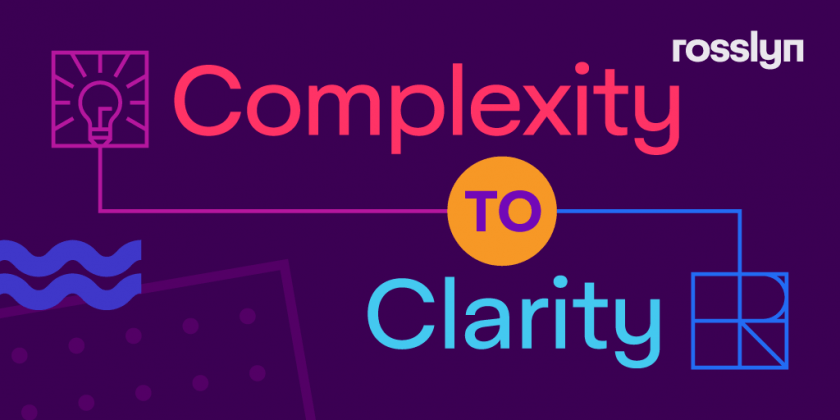How to create a forward-thinking data culture

Having a data-driven culture is essential for staying competitive in today’s marketplace. Your data tells the story of where your business has been, where it’s going, and where you can choose to take it.
If you’re feeling restricted by existing processes and wondering if there’s a better way, the good news is there is.
Championing a forward-thinking approach will make processes easier, increase profitability and act as a benefit enabler that will give your procurement function the edge it needs to stay agile in today’s fast-moving marketplace.
In this guide, we’re going to explore what data-driven culture is, its benefits, and the challenges it faces before looking at how it can be achieved.
What is data culture?
Data culture is where companies implement an analytic, data-backed environment within the workplace.
This data-centric culture encapsulates everybody in the business from top to bottom.
It represents how everybody in the company values and utilizes clear, understandable, and accessible data by:
- Using analytics to inform business decisions.
- Fostering an inclusive, innovative work environment.
- Enabling staff to make better decisions based on information derived from existing data.
Creating a positive, data-driven culture can help realize your employee’s potential by empowering them through information.
Why is a data culture important?
It is said that knowledge is power. A recent study by Harvard Business Review highlighted how “data and analytics should be the pulse of the organization, incorporated into all key decisions.”
Indeed, a healthy data culture will empower businesses to create a working environment that challenges previous methods and allows for rational decisions to be made.
Yet despite this, the use of procurement analytics can be met with mixed responses.
Traditionally, procurement managers may prefer sourcing, negotiating, and building relationships rather than trawling through large swathes of data that can appear tedious and daunting.
However, the information hidden within this data has the potential to be a benefit enabler and give your business a competitive edge.
Benefits include:
- Making better decisions with statistical information.
- Making important decisions at a fast pace.
- Saving costs identified by analyzing previous business.
- Increasing revenue and profit margins.
- Implementing a more efficient, productive way of working.
- Modifying archaic processes and propelling your business into the future.
- Leveraging emerging technologies.
- Removing the chaos from the procurement function.
- Improving your customer service by heightening your customer’s experience throughout their purchase.
- Providing a better working experience for your employees and boosting employee retention rate.
The benefits are clear; however, the culture needs to be prevalent amongst all staff to extract true value from the data.
Key Challenges for creating a data culture
Before we explore how to create an effective data culture, we must first recognize and understand what challenges await.
Your job will be to introduce a forward-thinking data culture that sticks across the business.
Here are two of the challenges that await you.
Resistance to Change
Change can often meet resistance. To some people, it casts doubt on what their role will be within the business, whether they’ll have the capacity to use new tech or if they can simply adapt to this new environment.
Alleviate these worries by providing tools and specialized training. Similarly, shedding light on the benefits of procurement analytics can help to convince important stakeholders of the necessity of giving the business the edge necessary to compete for the future.
Provide an engaging learning experience plus foster a collective enthusiasm for a data culture and see everyone take to it with vigor.
Dirty Data
Having messy, inaccurate data is a nightmare for teams to sift through and find a use for. Dealing with “dirty data” can taint your employees’ opinion of it. It can take a lot of time and concentration to go through, lowering productivity and hurting staff morale.
Additionally, corrupt data can lead to ill-informed decisions which can hurt the business resulting in poor strategic decisions, a poorer customer experience, and a simultaneous decrease in profitability and productivity.
One of the best ways to improve “dirty data” is to get the people that understand the data working on it, identifying the gaps and highlighting improvements. If this can happen rapidly, with suggested changes updated quickly, they will begin the trust the data.
This is where having a procurement analytic tool can help you clean your data quickly, saving you time, money, and frustration.

How to create a data culture
We know what a data culture is, its benefits, and what issues we may have to overcome implementing it.
Now let’s look at how we go about creating a forward-thinking data culture.
1. Ask yourself the big questions (Communication)
Whether it’s wondering how your company views data, how you’ll effectively manage change, or what speed to change at; brainstorming these queries are crucial for preparation.
This is not a case of one size fits all and will require input from employees of all levels. Do your research, conduct surveys, hold brainstorming sessions, and compile information.
Our advice here would be to harness a collaborative atmosphere where everyone’s input is valued. The answers are within your business.
2. Lead by example (Leadership)
Creating a forward-thinking culture starts at the top.
By investing in specialized training from the top down you can focus on enabling management to drive innovative change forward.
Having employers lead by example by using data-driven decisions will get inspire confidence and get employees behind these new changes.
3. Define your vision (Mission Statement)
Introducing this culture will require defining your company’s ambitions and conveying them in a clear, easy-to-follow way.
A report from Gartner recommends you to, “Craft a bold inspiring mission statement and then build programs that deliver indisputable value.”
This harnesses a sense of camaraderie within the team, as it creates a common objective for everyone within the organization to aim for.
4. Foster a data literate environment (Training)
You need to have a data literate workforce to avoid hindering progressive change within procurement functions.
Data literacy is the ability to read, write and communicate data in context.
Educating employees on how to use data solves this. Also, remember to try and implement the information as it is taught, as this is what will solidify learnings and drive your culture change forward.
5. Introduce clearly defined metrics (Outcomes)
Your data culture will be built on clear KPIs.
It’s up to employers to come up with suitable metrics to monitor performance and measure success.
Clearly defined KPIs will set expectations for what is required, give your employees a clear sense of direction and build upon the data-driven culture you wish to build.
6. Adopt ideas from others (Learning)
It’s rare to have a new idea for harnessing data.
However, there are other opportunities to gain inspiration from others. You can borrow ideas and expand on them to suit your needs.
This can be tricky, and a problem-solving acumen married with a curious mindset is important to make this work. Check other approaches from different businesses and tailor one to suit your own.
7. Invest in intuitive analytics tools (Expertise)
Having clean data is the difference between harmony and chaos. This is where having the right tool will make all the difference.
At Rosslyn we extract simple truths from your complex data, empowering you to make real decisions and extract genuine value. Giving users an intuitive, simple interface to work on and utilise the data can help improve buy in.
Partnering with experts will make your journey to a data-driven culture more efficient and enjoyable.
Check out our data services and resources to help you along your way.